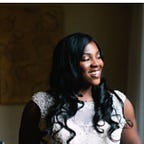Taraji P. Henson has incredible star power. Why didn’t Sony promote ‘Proud Mary’?
PERSPECTIVE | The assassination of ‘Proud Mary’
Last summer, I watched with bright eyes as Taraji P. Henson struts down a hallway as an assassin in a trailer for the action flick, “Proud Mary.” Henson wears a sleek, all-black outfit with above-the-knee boots as she kicks ass and takes names. Even though the trailer didn’t offer much plot context, I couldn’t wait for the film’s release. Lately, we haven’t seen many black women play action heroes. Henson in “Proud Mary” had the potential to be my modern-day Pam Grier.
But unfortunately, after seeing the trailer, I didn’t hear much else. I never saw “Proud Mary” promoted anywhere again. I even asked several people if they were going to see this film — which came out Jan. 12 — and no one knew what I was talking about. Black Twitter was first to point out Sony’s abysmal promotion job.
Screen Gems, a division of Sony, didn’t screen the film for critics to avoid poor reviews, and hosted very few early-bird screenings. As women fight for representation and black audiences search for more representation in the arts, it felt like the right time to release “Proud Mary.” Hollywood seemed to be catching on with other female-led films.
When Focus Features released its femme fatale flick “Atomic Blonde” last summer, its star Charlize Theron, who was being celebrated for her role in “Mad Max,” was everywhere. Then there was Gal Gadot in “Wonder Woman,” being touted as the feminist icon we didn’t deserve. And just last month, Star Wars’ Rey received adulation for her girl power. But still there was none of the same hooplah for “Proud Mary.”
In an interview with the Hollywood Reporter, Henson seemed to be well aware of the inequity for expectations that takes place with black films. Studios don’t even “expect us to do well,” Henson said. The “Empire” star is an executive producer on “Proud Mary,” and is trying to convince the studio to promote the film internationally, she told THR.
Henson knows her star power. She is well aware that audiences crave black characters onscreen, and fans will come, regardless of studios’ promotional decisions.
“I don’t even sweat my movies opening in the States anymore; I know they will,” Henson said. “I’m not even trippin’ off of domestic success anymore, and that’s not even me being conceited.”
Lucky for Henson, solidarity has been the common thread amongst black women. There have already been social media campaigns spreading online for us to go and support our girl, despite Screen Gems’ efforts to bury the film and cancel last-minute screeners for reviewers of color.
So support the film I did. What more did an Oscar-award winning actress who produced her own blockbuster action feature need to do for us to go see her movie? As a black woman, I would obviously stan for this film, regardless of whether or not it was good. How many mediocre films with white women as action heroes get endless press, regardless of quality? A trailer for yet another Jennifer Lawrence movie played during the previews, and I felt my fist clenching like Arthur because I already know I will be subjected to an entire month of sound bites and talk show appearances from Lawrence to promote her film.
Although credits indicate the film was written by men, it’s clear Henson was at the helm creatively. There were very clear hallmarks that this was a mainstream movie made for the entertainment and enjoyment of black people. It may not have been the movie we wanted, but we deserved the chance to see Henson’s strong portrayal of Mary, an assassin who kills a young boy’s father as part of a hit job. Riddled with guilt — likely because Mary is also an orphan — she goes back for the boy to be his guardian.
The relationship between Mary and the boy, Danny (Jahi Di’Allo Winston), is what carries the film. (Henson’s phenomenal lace fronts helped too.)
We not only get to see the strength of their bond, but the role that black women have often found themselves in through advocating for the lives of young black men. At several points in the film, we see Danny put his hood up, which felt symbolic of Trayvon Martin. When talking to Danny, Mary channels sass, firmness and unconditional love, as many black mothers do. Henson also avoided falling into the mammy and jezebel tropes. The film was noticeably void of sex scenes.
There was bound to be violence in a film with an assassin as the lead character, but Mary was intentional with her kills. Oftentimes, black characters in film possess a primal inability to control rage. It’s a stereotype that Mary escaped.
I find it almost impossible to watch a lot of violent storylines, especially because there is often an unnecessary and unbearable amount of black violence. But in “Proud Mary,” I noticed almost none of the people being shot and killed at close range were black. It isn’t until later on in the film that we see any trace of black death. In those instances, there is great purpose within the plot for the deaths. The characters are mourned and acknowledged as humans rather than treated as the typical throwaway.
In the end, the movie was entertaining. The final scene left me in tears and perhaps that’s what made this film so hard to promote. Many critics even admitted to expecting the antiquated formula of blaxploitation films. Black female characters aren’t traditionally humanized or multifaceted, and “Proud Mary” was all of those things. Who knows? A film featuring a black lady assassin could be the next sleeper hit.
